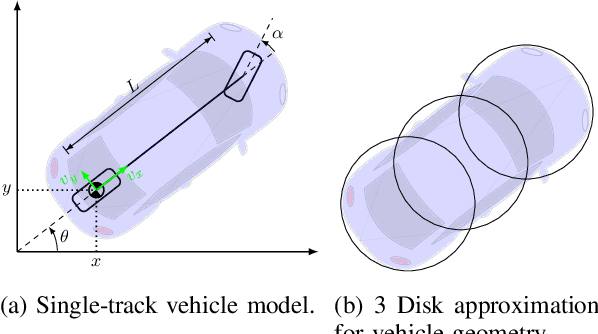A Multi-Heuristic Search-based Motion Planning for Automated Parking
Paper and Code
Jul 15, 2023



In unstructured environments like parking lots or construction sites, due to the large search-space and kinodynamic constraints of the vehicle, it is challenging to achieve real-time planning. Several state-of-the-art planners utilize heuristic search-based algorithms. However, they heavily rely on the quality of the single heuristic function, used to guide the search. Therefore, they are not capable to achieve reasonable computational performance, resulting in unnecessary delays in the response of the vehicle. In this work, we are adopting a Multi-Heuristic Search approach, that enables the use of multiple heuristic functions and their individual advantages to capture different complexities of a given search space. Based on our knowledge, this approach was not used previously for this problem. For this purpose, multiple admissible and non-admissible heuristic functions are defined, the original Multi-Heuristic A* Search was extended for bidirectional use and dealing with hybrid continuous-discrete search space, and a mechanism for adapting scale of motion primitives is introduced. To demonstrate the advantage, the Multi-Heuristic A* algorithm is benchmarked against a very popular heuristic search-based algorithm, Hybrid A*. The Multi-Heuristic A* algorithm outperformed baseline in both terms, computation efficiency and motion plan (path) quality.
 Add to Chrome
Add to Chrome Add to Firefox
Add to Firefox Add to Edge
Add to Edge